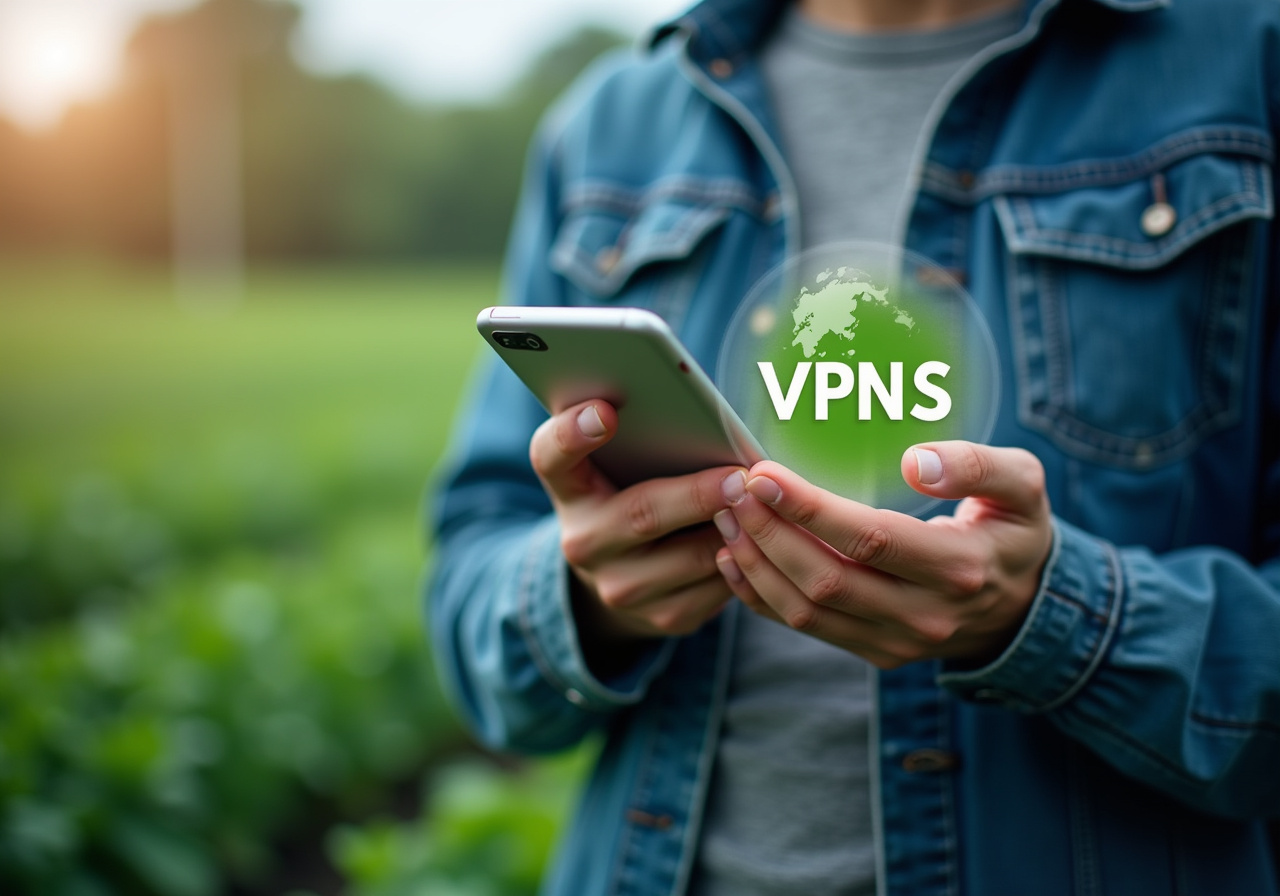How VPNs Aid Wildlife Researchers: Securing Field Data
Table of Contents
wildlife research VPNs
In the realm of wildlife research, the untamed landscapes and remote field sites that serve as laboratories also present unique challenges to data security. Modern wildlife research increasingly relies on a sophisticated array of technologies, from camera traps capturing elusive animal behavior to acoustic sensors recording intricate soundscapes, and GPS trackers mapping animal movements across vast territories. The data these tools generate – sensitive information detailing species locations, behavioral patterns, population dynamics, and even genetic makeup – is the lifeblood of conservation efforts and ecological understanding.
Protecting this data is not merely a matter of academic concern; it's a critical imperative for effective conservation planning and responsible stewardship of our planet's biodiversity. However, the inherent risks of conducting research far from the secure confines of a traditional laboratory are substantial. Researchers operating in isolated environments often depend on unreliable public Wi-Fi networks, vulnerable cellular connections, or even satellite internet, creating ample opportunities for malicious actors to intercept or compromise their data.
Think of a biologist meticulously documenting the migration patterns of an endangered bird species, transmitting their findings over an unsecured connection in a remote location. Or a team of researchers deploying camera traps to monitor poaching activity in a protected area, only to have their data stolen and used to further exploit vulnerable wildlife populations. The consequences of compromised data in wildlife research can be far-reaching and devastating.
Invalidated research findings can lead to misinformed conservation strategies, wasting valuable resources and potentially harming the very species they are intended to protect. Stolen data can be used to exploit vulnerable populations, facilitating illegal hunting, habitat destruction, and the introduction of invasive species. Moreover, breaches of confidentiality can jeopardize the safety and well-being of researchers themselves, particularly when working in regions with political instability or ongoing conflicts related to natural resources.
To combat these threats and ensure the integrity of their work, wildlife researchers are increasingly turning to Virtual Private Networks (VPNs) as a crucial layer of protection. A VPN creates a secure, encrypted tunnel for data transmission, shielding sensitive information from prying eyes and ensuring that it remains confidential, unaltered, and accessible only to authorized individuals. It's akin to building a secure, private highway through a public network, allowing researchers to transmit data safely, regardless of the underlying infrastructure.
For the wildlife researcher operating in the field, a VPN is no longer a mere convenience; it's a fundamental necessity for safeguarding their invaluable data and upholding the credibility of their research. The adoption of VPN technology represents a proactive step towards ensuring the long-term success of wildlife conservation and scientific discovery. It signifies a commitment to ethical research practices and a recognition of the vital role that data security plays in achieving conservation goals.
By embracing VPNs, wildlife researchers can confidently collect and transmit data from even the most challenging environments, knowing that their work is shielded from potential threats and contributes to a more secure and sustainable future for our planet's wildlife. More than just a technological solution, utilizing is a statement about the value placed on and the commitment to when studying animal populations, as these solutions provide an answer to .
field data security
The efficacy of a VPN in enhancing rests upon its fundamental ability to establish a secure and encrypted connection between a researcher's device and a remote server. When a researcher initiates a connection to a VPN, all data transmitted to and from their device undergoes encryption using sophisticated algorithms, effectively rendering it unintelligible to unauthorized parties. This encryption process, often employing robust protocols such as OpenVPN, IKEv2/IPsec or WireGuard, guarantees that even if data is intercepted during transmission, it cannot be deciphered without the corresponding decryption key.
Imagine a researcher transmitting GPS coordinates of a newly discovered nesting site for a critically endangered bird species. Without a VPN, this data could be intercepted by poachers, leading to the destruction of the nesting site and the further decline of the species. However, with a VPN in place, the GPS coordinates are scrambled into an unreadable format, protecting the nesting site from exploitation.
This is particularly vital when researchers are utilizing public Wi-Fi hotspots, which are commonly found in airports, cafes, and other public spaces, as these networks are notoriously susceptible to eavesdropping attacks. Hackers can easily set up fake Wi-Fi hotspots or intercept traffic on legitimate networks, gaining access to sensitive data transmitted by unsuspecting users. Without a VPN, sensitive information such as login credentials, research notes, or location data can be readily intercepted and exploited.
In addition to encryption, VPNs provide an additional layer of security by masking the researcher's IP address, effectively concealing their location and identity from websites and online trackers. This is particularly important when researchers are working on sensitive projects or in areas with potential security risks, such as regions with ongoing conflicts related to natural resources or areas where researchers may face harassment or intimidation. By routing all traffic through the VPN server, the researcher's actual IP address is hidden, making it significantly more challenging for anyone to monitor their online activity or track their movements.
For example, a researcher studying illegal logging activities in a protected area may not want their location to be easily identifiable, as this could put them at risk of retaliation. Furthermore, a robust VPN can serve as a deterrent to malicious actors who may be specifically targeting wildlife researchers or their valuable data. The presence of a VPN introduces a layer of complexity and security that can discourage potential attackers from attempting to intercept or compromise data.
Knowing that a researcher is utilizing a VPN signals that their data is protected by strong encryption, and that any attempt to access it will likely be met with significant resistance. This can be especially effective in deterring opportunistic attacks, where hackers are simply scanning for vulnerable devices or networks. Selecting the appropriate VPN for wildlife research necessitates careful evaluation of several key factors, including the strength of the encryption protocols used, the availability of servers in geographically relevant locations, the logging policies of the VPN provider, and the overall reliability and performance of the VPN service.
Researchers should prioritize VPNs that employ strong encryption algorithms, such as AES-256, and that adhere to a strict no-logs policy, ensuring that no information about user activity or browsing history is stored. These requirements will improve the by keeping potential threats out of the information stream. Moreover, researchers must ensure that the VPN provider has servers located in regions relevant to their research, allowing them to bypass geographical restrictions and access online resources as needed.
In summary, the implementation of a VPN constitutes a critical component of ensuring for wildlife researchers operating in the field. By providing a secure, encrypted connection and masking their IP address, VPNs contribute significantly to protecting sensitive data from interception, thereby ensuring the confidentiality and integrity of research findings. By taking these considerations seriously, researchers can reinforce the and ensure a data-secure study.
wildlife research VPN
Beyond the core security benefits of encryption and IP address masking, VPNs offer a suite of additional functionalities that can markedly enhance the efficiency, security, and collaborative potential of wildlife research endeavors. One significant advantage lies in their capacity to circumvent geographical restrictions and access online resources that may be blocked or otherwise unavailable in specific regions. This can be particularly crucial for researchers operating in remote or politically sensitive areas with limited or censored internet access.
Imagine a researcher studying the impact of climate change on migratory bird populations in a country with restricted access to scientific journals. By connecting to a VPN server in a different location, such as a country with open access policies, they can seamlessly access critical research papers and datasets that would otherwise be inaccessible, enabling them to conduct more comprehensive and informed analyses. Furthermore, VPNs can play a pivotal role in facilitating secure collaboration among researchers situated in disparate geographical locations.
Wildlife research often involves collaborative efforts between teams and institutions across the globe. Sharing sensitive data, such as camera trap images, acoustic recordings, or genetic data, requires a secure and reliable communication channel. By establishing a virtual private network, researchers can securely share data, documents, and other sensitive information without the risk of interception or unauthorized access.
This streamlined data exchange fosters more effective collaboration, accelerates the pace of research, and ultimately contributes to more impactful conservation outcomes. Consider a multinational team of researchers studying the movement patterns of a transboundary species, such as elephants or snow leopards. By utilizing a VPN, they can securely share GPS tracking data, habitat maps, and poaching incident reports, enabling them to develop coordinated conservation strategies across national borders.
Another noteworthy benefit of employing VPNs is their ability to provide a degree of protection against Distributed Denial of Service (DDoS) attacks, which can disrupt internet connectivity and prevent researchers from accessing critical online resources. DDoS attacks involve overwhelming a server with malicious traffic, effectively shutting it down and rendering it inaccessible to legitimate users. While a VPN is not a foolproof defense against sophisticated DDoS attacks, it can help to mitigate the risk by masking the researcher's IP address and making it more difficult for attackers to target their specific devices.
Furthermore, VPNs can assist in bypassing bandwidth throttling imposed by Internet Service Providers (ISPs). Some ISPs may intentionally slow down internet speeds for certain types of traffic, such as streaming video or large file downloads, which can hinder researchers' ability to access and share data. By using a VPN, researchers can sometimes circumvent these bandwidth restrictions and enjoy faster, more reliable internet access.
The use of a VPN is not just about enhancing security; it's also about empowering researchers to work more effectively and efficiently, regardless of their location or the challenges they face. Selecting a with servers in many locations avoids the potential pitfall of reduced speeds in specific regions. Another consideration would be to look into the terms of service agreement for the VPN to make sue that large transfers of data are allowed over their networks.
The added element of protection will in turn allow the researchers to commit further actions and ensure for long durations. The increase of security will also result in improvements and ensure .
field data security
Implementing a VPN effectively within the context of wildlife research requires careful planning, diligent execution, and a commitment to ongoing maintenance. The process begins with selecting a VPN provider that aligns with the specific needs and priorities of the research project. Beyond the previously discussed factors of encryption strength, server locations, and logging policies, researchers should also consider the user-friendliness of the VPN software, the availability of customer support, and the compatibility of the VPN with their operating systems and devices.
A cumbersome or unreliable VPN can be a significant source of frustration, hindering productivity and potentially compromising security. Once a VPN provider has been selected, the next step is to properly configure the VPN software on all devices used for data collection and transmission. This includes computers, smartphones, tablets, and any other devices that connect to the internet.
It is crucial to ensure that the VPN is always enabled whenever the device is connected to the internet, especially when using public Wi-Fi networks. Researchers should also familiarize themselves with the VPN's settings and features, such as the ability to automatically connect to the VPN when the device starts up or the option to choose different VPN protocols for different types of traffic. In addition to configuring the VPN software, researchers should also take steps to secure their devices themselves.
This includes using strong passwords, enabling two-factor authentication, installing antivirus software, and keeping their operating systems and applications up to date with the latest security patches. A VPN is an important layer of protection, but it is not a substitute for basic security best practices. Furthermore, researchers should establish clear protocols for data handling and storage.
This includes encrypting sensitive data at rest, regularly backing up data to secure locations, and implementing access controls to limit who can view or modify the data. It is also important to train all members of the research team on these protocols and to ensure that they understand the importance of data security. Wildlife research often involves collecting data in remote and challenging environments, where access to electricity and internet connectivity may be limited.
Researchers should plan accordingly by bringing portable power banks, satellite internet devices, or other backup communication systems. They should also consider using offline data collection tools that do not require an internet connection, such as paper notebooks, GPS devices with offline maps, or specialized data logging software. The long-term maintenance of a VPN is just as important as its initial implementation.
Researchers should regularly check for updates to the VPN software and install them promptly. They should also monitor their VPN connection for any signs of problems, such as slow speeds or frequent disconnections. If they encounter any issues, they should contact their VPN provider for support.
Finally, researchers should periodically review their data security protocols and make adjustments as necessary. The threat landscape is constantly evolving, and researchers must adapt their security measures to stay ahead of the curve. With constant change it could lead to issues in , , and , but the simple application of VPN software can prevent external intrusion.
By following these recommendations, wildlife researchers can enhance , and can ensure the integrity and confidentiality of their data.
observation protection
In conclusion, the integration of VPNs into the workflows of wildlife researchers represents a crucial step towards safeguarding sensitive field data and upholding the highest standards of research integrity. As the reliance on digital data collection methods continues to grow in this field, the vulnerabilities associated with unprotected data transmission become increasingly pronounced. The use of VPNs provides a robust and reliable solution to mitigate these risks, ensuring that valuable research findings remain confidential, unaltered, and accessible only to authorized individuals.
The adoption of VPN technology goes beyond simply enhancing security; it empowers researchers to conduct their work with greater confidence, knowing that their data is protected from potential threats. This allows them to focus on their core mission of understanding and conserving wildlife, rather than constantly worrying about the security of their data. Furthermore, VPNs facilitate collaboration among researchers across geographical boundaries, enabling them to share data and insights securely and efficiently.
This collaborative potential is essential for addressing complex conservation challenges that require global cooperation. The proper implementation of VPNs requires careful consideration of several factors, including the selection of a reliable VPN provider, the configuration of VPN software on all devices, and the establishment of clear data security protocols. Researchers should prioritize VPNs that offer strong encryption, a wide range of server locations, and a strict no-logs policy.
They should also take steps to secure their devices and implement robust data handling and storage procedures. The benefits of using VPNs in wildlife research are numerous and far-reaching. They include protecting sensitive data from interception, masking IP addresses, bypassing geographical restrictions, facilitating secure collaboration, and mitigating the risk of DDoS attacks.
By embracing VPN technology, wildlife researchers can not only protect their data but also enhance their productivity, efficiency, and overall impact. As technology continues to evolve, it is likely that new threats to data security will emerge. Wildlife researchers must remain vigilant and adapt their security measures accordingly.
This includes staying up-to-date on the latest security best practices, monitoring their VPN connection for any signs of problems, and periodically reviewing their data security protocols. The commitment to data security is an ongoing process that requires constant attention and adaptation. Looking ahead, there is a need for greater awareness and education about the importance of data security in wildlife research.
Funding agencies, research institutions, and conservation organizations should provide resources and support to help researchers implement effective data security measures. This includes offering training programs, providing access to secure data storage facilities, and encouraging the use of VPNs. VPNs provide a strong avenue toward and keeping a higher .
Wildlife researchers must continue to be aware of new software that enters the market and ensure that the programs keep helping with . The future of wildlife conservation depends on our ability to collect and analyze data effectively and responsibly. By embracing VPNs and other data security measures, we can ensure that the data we collect is used to protect wildlife for generations to come.
By taking these steps, the key phrase will remain high.
Stay Updated
Get the latest VPN news, tips, and exclusive deals to your inbox.




